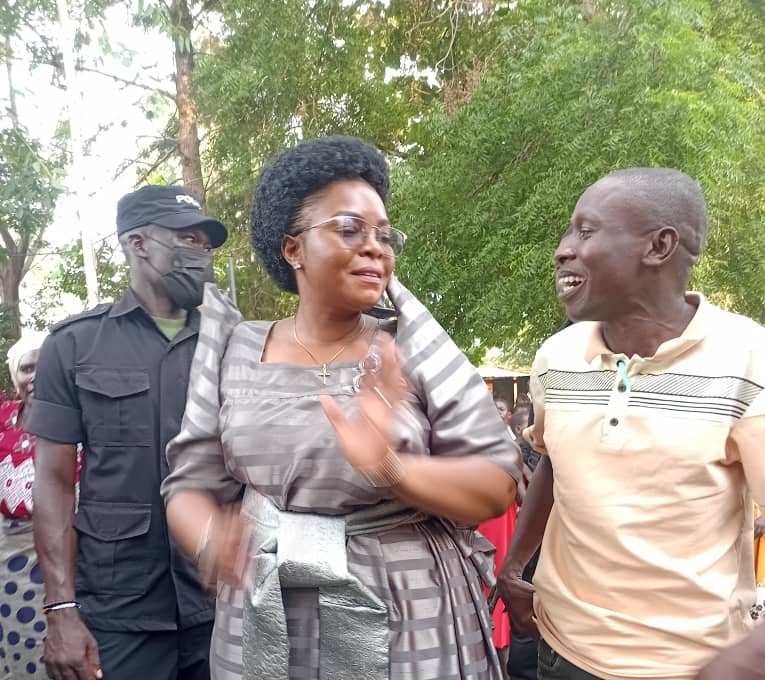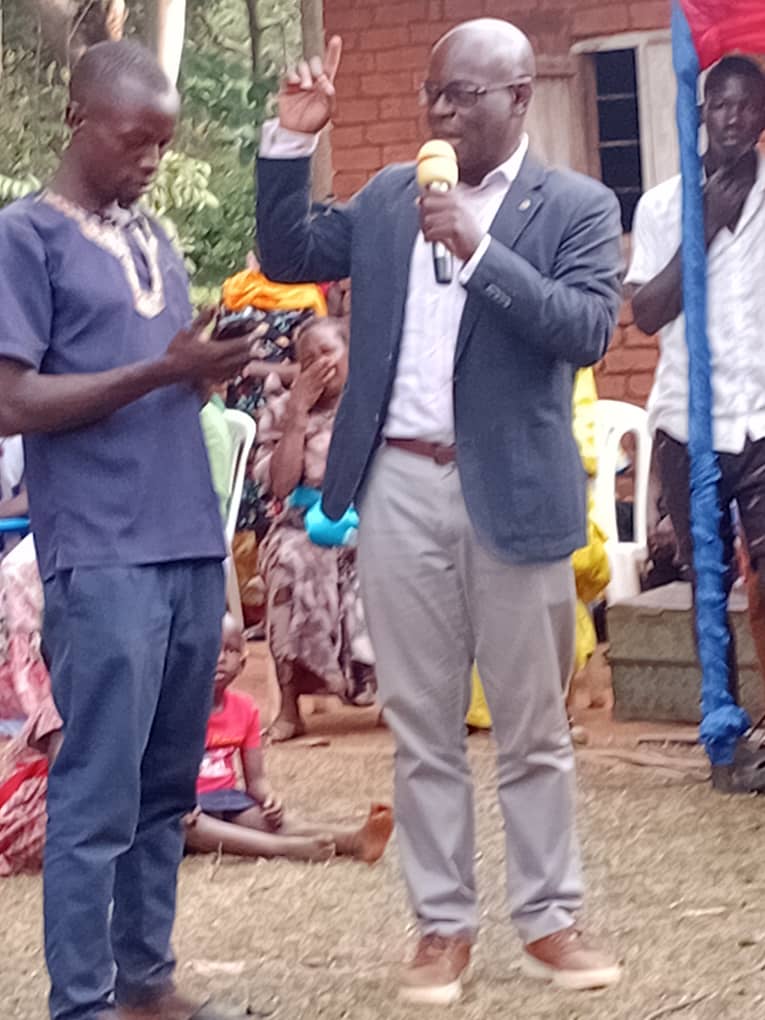Minister Namuganza accused of playing the victim card as Bukono NRM Primary Race heats up
The NRM primary in Bukono features several prominent contenders, including Paul Bajje Baite, Namuganza herself, and Emmanuel Maganda Katoko, alongside Hajji Siraji Gusongoirye and Dr. Andrew Mpanga.

The race for the National Resistance Movement (NRM) party ticket in Bukono Constituency, Namutumba District, is intensifying, with accusations of dirty tactics and claims of victimhood dominating the political landscape.
Minister of State for Lands, Persis Namuganza, the incumbent Member of Parliament for Bukono, has found herself at the center of the storm, alleging that her opponents are resorting to nefarious methods to undermine her bid for re-election.
Namuganza, who has represented Bukono for a decade, recently voiced her fears, claiming her rivals have formed “egaali” – a Luganda euphemism for an organized gang of “hardcore fearless youth” – designed to disrupt her campaign trail and intimidate voters. Egaali is widely understood to denote organized thuggery aimed at spreading fear among the populace.
Speaking at a burial in Ivukula Subcounty on Saturday, Namuganza revealed the extent of her apprehension, stating she has developed “cold feet” about participating in joint NRM primary rallies with her competitors.
She recounted a startling incident: “Someone called me this morning claiming they had been paid Sh20,000 to pelt me with stones, whenever I attend burials. He asked for double the amount to abort the mission.”
This incident follows a public heckling Namuganza endured last month at another burial in her constituency, where she was unable to speak. This had occurred a day after she reportedly attempted, unsuccessfully, to prevent her opponents from speaking at a separate funeral.
Namuganza claimed that news and footage of this incident reached the “appointing authority,” President Yoweri Museveni, who allegedly expressed concern for her safety. “President Museveni called me and he was worried,” she claimed.
In a seemingly veiled warning, she added, “You pelt me with stones, yet my security detail have guns with bullets. Do you want us to respond?”
However, the Minister’s comments drew more grumbles than sympathy from her constituents. Many expressed frustration, arguing that her decade in Parliament has been largely characterized by “lip service,” with her consistently highlighting her proximity to the corridors of power, particularly President Museveni, rather than focusing on tangible service delivery for the people of Bukono.

The NRM primary in Bukono features several prominent contenders, including Paul Bajje Baite, Namuganza herself, and Emmanuel Maganda Katoko, alongside Hajji Siraji Gusongoirye and Dr. Andrew Mpanga.
In a thinly veiled dig at one of her most formidable opponents, Paul Bajje Baite, son of the area’s political kingmaker, Baite Munobwa, Namuganza expressed her dismay at his entry into the race.
She declared that his candidacy was the “last thing she expected” given their supposed “family” ties. “Mr. Baite Munobwa is my political patriarch and I consider him family. For him to front his son to contest against me is the last thing I expected,” she stated.
In a swift and direct rebuttal, Paul Bajje Baite, who received his education in the UK, addressed mourners, asserting that the era of “absentee leadership and political games” was over. He promised a leadership style anchored in visible and development-focused initiatives that prioritize the people over political maneuvering.
“Her claims are an attempt to divert attention from the fact that over the past 10 years, she’s played politics and failed at service delivery. It is time for action and not rhetoric,” Baite Bajje declared, directly challenging Namuganza’s narrative.
Baite, who plans to officially launch his campaign this Saturday at Ivukula Sub County headquarters, appealed to the constituency to entrust him with the NRM flag, promising a representation anchored on “tangible service delivery.”
As the NRM primary draws closer, the battle for Bukono is shaping up to be a defining contest, with voters weighing the incumbent’s claims of victimhood against her opponents’ calls for accountability and concrete development.







